How the Mahabharata Changed India’s Name Forever: A Mythical Revelation
Nidhi | Jan 07, 2025, 13:43 IST
Uncover the deep connection between the Mahabharata and the name Bharat. This article delves into the spiritual, cultural, and historical origins of India’s name, revealing how the epic’s wisdom and stories shaped the very identity of the nation. Discover how the name Bharat has evolved through ancient tales of righteousness, duty, and divine intervention.
"What if the land you walk upon carries the weight of thousands of years of wisdom, battles, and divine blessings? What if the very name of your homeland echoes with the voices of kings, warriors, and gods? The name Bharat—a name that every Indian knows—has roots deep within the ancient epic of the Mahabharata, a tale of moral dilemmas, sacred duty, and the eternal quest for truth."The Mahabharata is more than just an epic of a royal family’s struggle for power—it is the story of the land itself. The land we call Bharat today was not always known by this name. It was the Mahabharata, with its rich tapestry of characters, gods, and ancient kings, that gave this land its timeless identity. The connection between the name Bharat and the epic is more than just historical; it’s spiritual, emotional, and deeply woven into the very fabric of India’s existence.
Here’s how the Mahabharata gave the land we call India its name, and why it carries with it a legacy that still resonates in the hearts of millions.
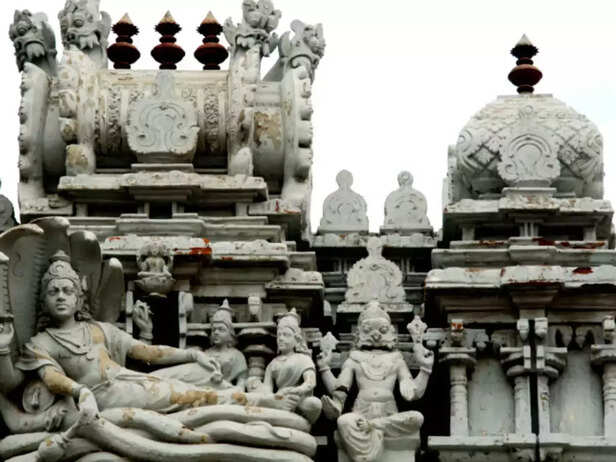
The name Bharat is first and foremost tied to the legendary King Bharata. Known for his wisdom, compassion, and valor, King Bharata ruled a vast kingdom, and his greatness became the benchmark of righteousness. The Mahabharata tells us that the land he ruled was so prosperous, so filled with dharma (righteousness), that it took his name.
A King Who Was Greater Than His Kingdom:
Bharata wasn’t just a ruler of land—he was a symbol of the values that would forever shape India’s identity. His devotion to dharma, his selfless rule, and his spiritual prowess made his name inseparable from the land. As the Mahabharata unfolds, the echoes of King Bharata’s wisdom and moral strength reverberate across the generations.
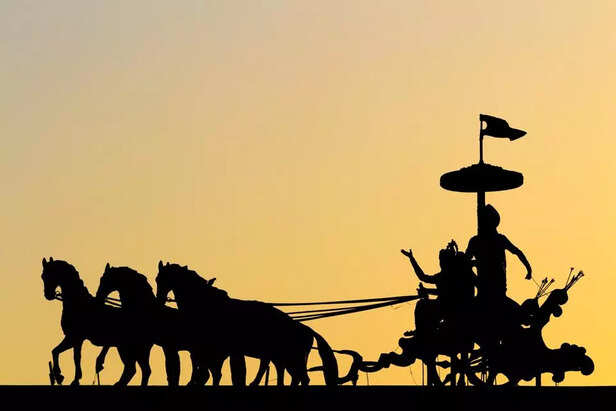
In the mythological world of the Mahabharata, gods are not distant figures—they are intimately involved in the lives of mortals. It is said that the gods themselves bestowed the name Bharat upon the land as a mark of divine approval and blessing. This wasn’t just any name; it was a divine seal, ensuring that the land of Bharat would always be a place where dharma was upheld, where the sacred and the earthly met.
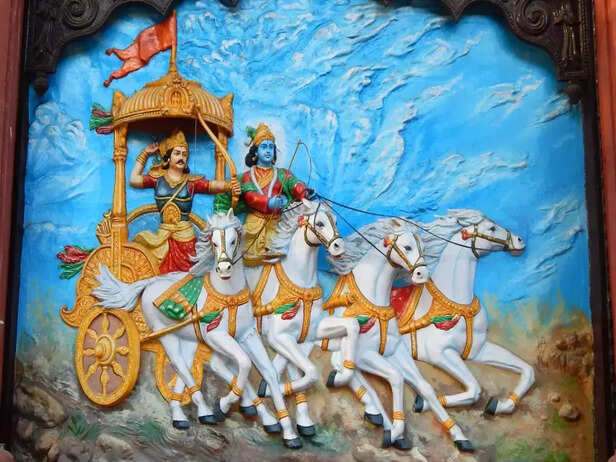
The Mahabharata is often considered the ultimate story of human struggle—the conflict between good and evil, righteousness and desire, duty and personal loss. These struggles didn’t only happen on the battlefield of Kurukshetra—they are struggles that every human faces. The name Bharat came to symbolize this internal battle that each of us fights daily.
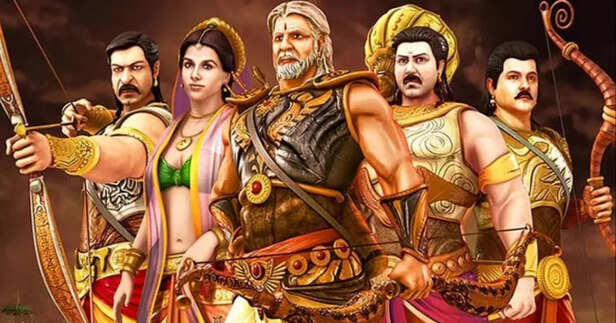
In the Mahabharata, the concept of dharma—duty, morality, and justice—is at the heart of every action. Whether it was the Pandavas upholding their commitment to righteousness or Lord Krishna guiding Arjuna to fulfill his duty, the epic shows how deeply dharma is tied to the land itself. The name Bharat thus carries the responsibility of upholding this divine law.
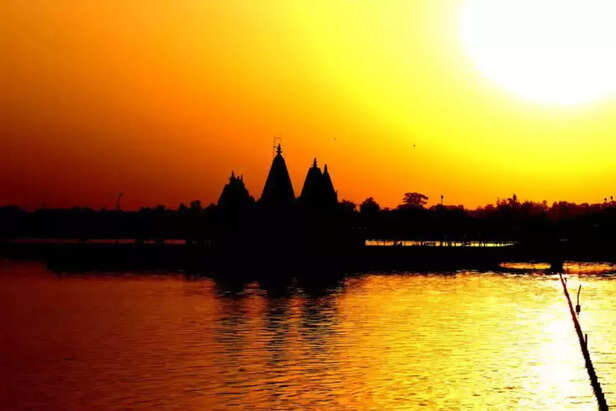
The Mahabharata is timeless. Its lessons—about war, peace, love, sacrifice, and the search for truth—continue to resonate with us today. The name Bharat serves as a bridge between the ancient and the modern, between the divine and the human. Every time we say the name Bharat, we are connecting with the very essence of the epic.
The name Bharat is not just the title of a country; it is a reflection of the very soul of India, deeply rooted in the teachings and legacy of the Mahabharata. It is a name that carries with it the stories of kings, the struggles of warriors, and the wisdom of gods. It is a name that reminds every soul who walks upon this land of their sacred duty to uphold dharma, to fight for justice, and to live a life of purpose.
As you walk the land of Bharat, remember: you are not just a citizen of a country. You are a part of an ancient, timeless story—a story that continues to shape the world through the wisdom of the Mahabharata.
Here’s how the Mahabharata gave the land we call India its name, and why it carries with it a legacy that still resonates in the hearts of millions.
1. Bharata: The King Who Became the Name of a Land

Kurukshetra
The name Bharat is first and foremost tied to the legendary King Bharata. Known for his wisdom, compassion, and valor, King Bharata ruled a vast kingdom, and his greatness became the benchmark of righteousness. The Mahabharata tells us that the land he ruled was so prosperous, so filled with dharma (righteousness), that it took his name.
A King Who Was Greater Than His Kingdom:
Bharata wasn’t just a ruler of land—he was a symbol of the values that would forever shape India’s identity. His devotion to dharma, his selfless rule, and his spiritual prowess made his name inseparable from the land. As the Mahabharata unfolds, the echoes of King Bharata’s wisdom and moral strength reverberate across the generations.
2. A Divine Blessing: The Gods’ Connection to Bharat

Kurukshetra
In the mythological world of the Mahabharata, gods are not distant figures—they are intimately involved in the lives of mortals. It is said that the gods themselves bestowed the name Bharat upon the land as a mark of divine approval and blessing. This wasn’t just any name; it was a divine seal, ensuring that the land of Bharat would always be a place where dharma was upheld, where the sacred and the earthly met.
- The Land Blessed by the Divine:The Mahabharata teaches that the very soil of Bharat carries the blessings of the gods. The gods saw the land as sacred, and through King Bharata, they made sure that the name Bharat would carry with it not just royal authority, but divine favor. This spiritual blessing has passed down through centuries, reminding each generation of their sacred duty.
3. Bharat: A Land of Eternal Struggles and Resolutions

mahabharata
The Mahabharata is often considered the ultimate story of human struggle—the conflict between good and evil, righteousness and desire, duty and personal loss. These struggles didn’t only happen on the battlefield of Kurukshetra—they are struggles that every human faces. The name Bharat came to symbolize this internal battle that each of us fights daily.
- A Land Where Every Soul Is a Warrior:In the epic, every character—whether a god, a king, or a commoner—has to face their own personal war. The Mahabharata teaches us that each of us has a Kurukshetra within, where we battle our inner demons. The name Bharat embodies this eternal struggle, encouraging us to seek righteousness and truth, no matter how difficult the path.
4. A Symbol of Duty: The Nation’s Unbroken Connection to Dharma

Mahabharata
In the Mahabharata, the concept of dharma—duty, morality, and justice—is at the heart of every action. Whether it was the Pandavas upholding their commitment to righteousness or Lord Krishna guiding Arjuna to fulfill his duty, the epic shows how deeply dharma is tied to the land itself. The name Bharat thus carries the responsibility of upholding this divine law.
- The Land of Eternal Duty:To be born in Bharat is to inherit a sacred responsibility—to live with integrity, to fight for justice, and to serve the greater good. The name Bharat is not just a geographical label; it is a call to each individual to honor the values that King Bharata exemplified, and that the Mahabharata continues to teach.
5. Bharat: A Place Where the Past Meets the Present

Brahma Sarovar, Kurukshetra
The Mahabharata is timeless. Its lessons—about war, peace, love, sacrifice, and the search for truth—continue to resonate with us today. The name Bharat serves as a bridge between the ancient and the modern, between the divine and the human. Every time we say the name Bharat, we are connecting with the very essence of the epic.
- The Epic Continues to Shape Us:From the wisdom of the Bhagavad Gita to the sacrifices of the Pandavas, the Mahabharata teaches us lessons that are as relevant today as they were thousands of years ago. In every corner of Bharat, these lessons live on. The name Bharat is a reminder that we are all part of this eternal story—a story that has shaped not just a nation, but the hearts of its people.
Conclusion: The Sacred Heart of Bharat
As you walk the land of Bharat, remember: you are not just a citizen of a country. You are a part of an ancient, timeless story—a story that continues to shape the world through the wisdom of the Mahabharata.
